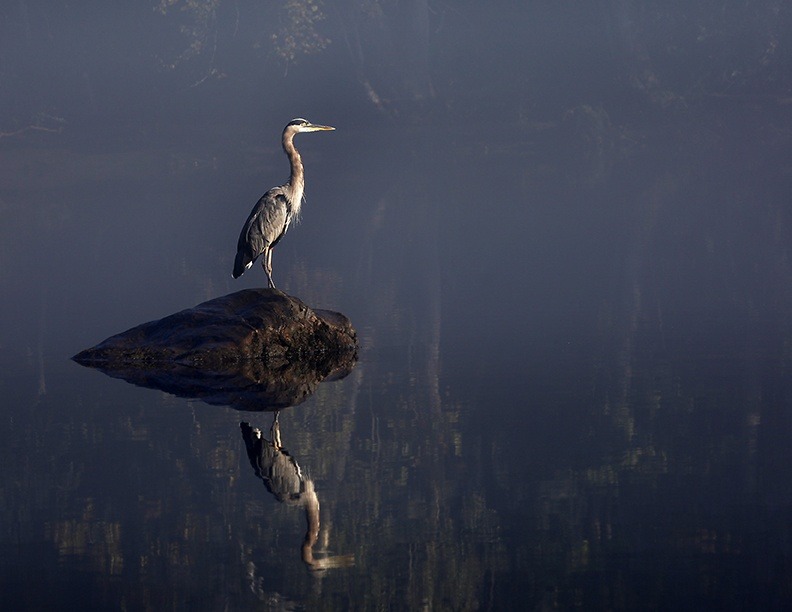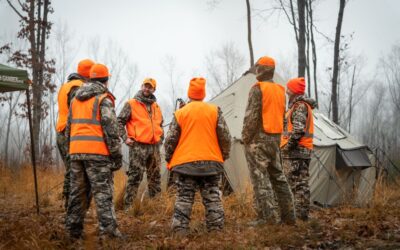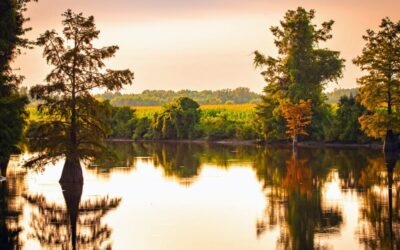Opinion article by Michael Butler, CEO of Tennessee Wildlife Federation, as it appeared in the Knoxville News Sentinel.
For many East Tennesseans, public lands are a way of life. With the gateway to the Great Smoky Mountains National park on their doorstep, many—if not all—East Tennesseans have spent considerable time on these lands and experienced the direct benefits of the great outdoors.
The City of Knoxville continues to pursue the development and implementation of creating urban wildernesses that support wildlife and for area residents bridge interest and engagement in outdoor recreation. In fact, Tennessee Wildlife Federation was proud to present Mayor Rogero with the city’s Community Wildlife Habitat certification from the National Wildlife Federation late last year, and Conservation Fisheries in Knoxville was awarded the Wildlife Conservationist Award in 2016.
In Tennessee, just over 2.4 million acres—roughly 10 percent of the state—are classified as public lands. These lands include national parks, forests and wildlife refuges; state parks and forests; and city lands and properties.
Public lands provide a retreat from the daily grind and give us opportunities for relaxation and recuperation. They provide lumber, fresh air and water, and abundant wildlife for all uses. And as significant economic drivers, these lands have impacted our communities to the tune of $30 billion annually, across multiple industries and through tax and licensing revenue streams.
Tennessee Valley Authority’s managed river system alone generates $11.9 billion per year in economic impact, which is the equivalent of $1 million per shoreline mile, and offers public lands and waters for all uses.
The issues surrounding public lands are complex and varied. Often, short-sighted arguments and immediate profiteering by a handful of individuals win out over the lifelong benefits of these lands—both tangible and intangible.
At state and national levels, elected officials are introducing and supporting policies that seek to strip public lands, or access to them, from the hands of the public—the owners of these lands and waterways.
Even civilian developers build private floating homes on our public waters, resulting in de facto privatization that excludes the public from using that part of the public resource.
Yet, the overwhelming majority of Tennesseans are in favor of publicly held lands. Knoxville in particular has done a superb job of showcasing the draw to public lands and our inherent need for the outdoors.
See, Knoxville has found a way to bring public lands to the forefront of its community identity through its urban wildernesses. As a whole, Americans have lost the experience of living off the land. And we have lost an understanding of that experience as well as the processes that govern it. With greater development, city-dwellers further lose their connection with the outdoors; we become spectators rather than participants.
But, Knoxville has piqued interest in these lands. By creating an urban wilderness—a bridge to engage residents in full immersion recreation—Knoxville has collectively brought the outdoors back to mind. Hopefully, this increased interest will also translate to stewardship of larger public lands that promote conservation of wildlife and natural resources, such as Great Smoky Mountains National Park, Cherokee National Forest, and Seven Islands State Birding Park—the only designated birding park in the state.
And not only has the community rallied around these lands but has also relished the distinction such efforts bring as the community is recognized as a top town and outdoors city.
So, it is imperative that we, as Tennesseans who cherish public lands, hold the line. We must communicate with our leadership and legislators our support for these publicly held assets. Likewise, it is imperative we raise up future generations with a knowledge and longing for the outdoors. A respect for natural resources. The collective right to enjoy and appreciate these lands. The responsibility of maintaining these lands and ensuring conservation efforts continue into another day.
Our greatest asset—our community identity—relies on public lands and the outdoor recreation they provide. Let’s keep holding on, fighting for them, and enjoying all they have to offer.
Featured photo by Ken Van Dyne




